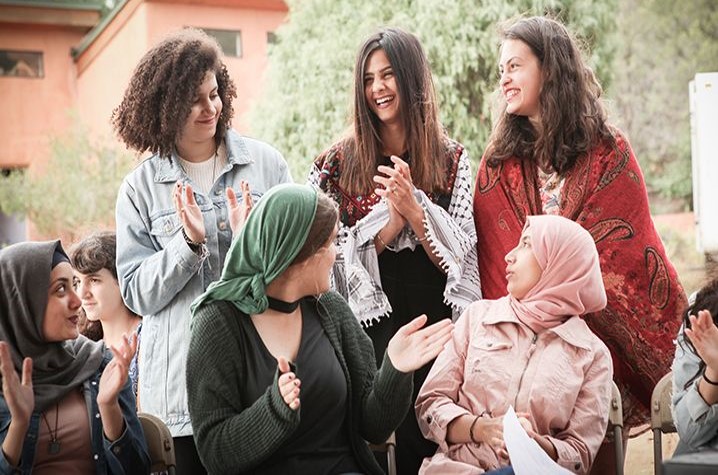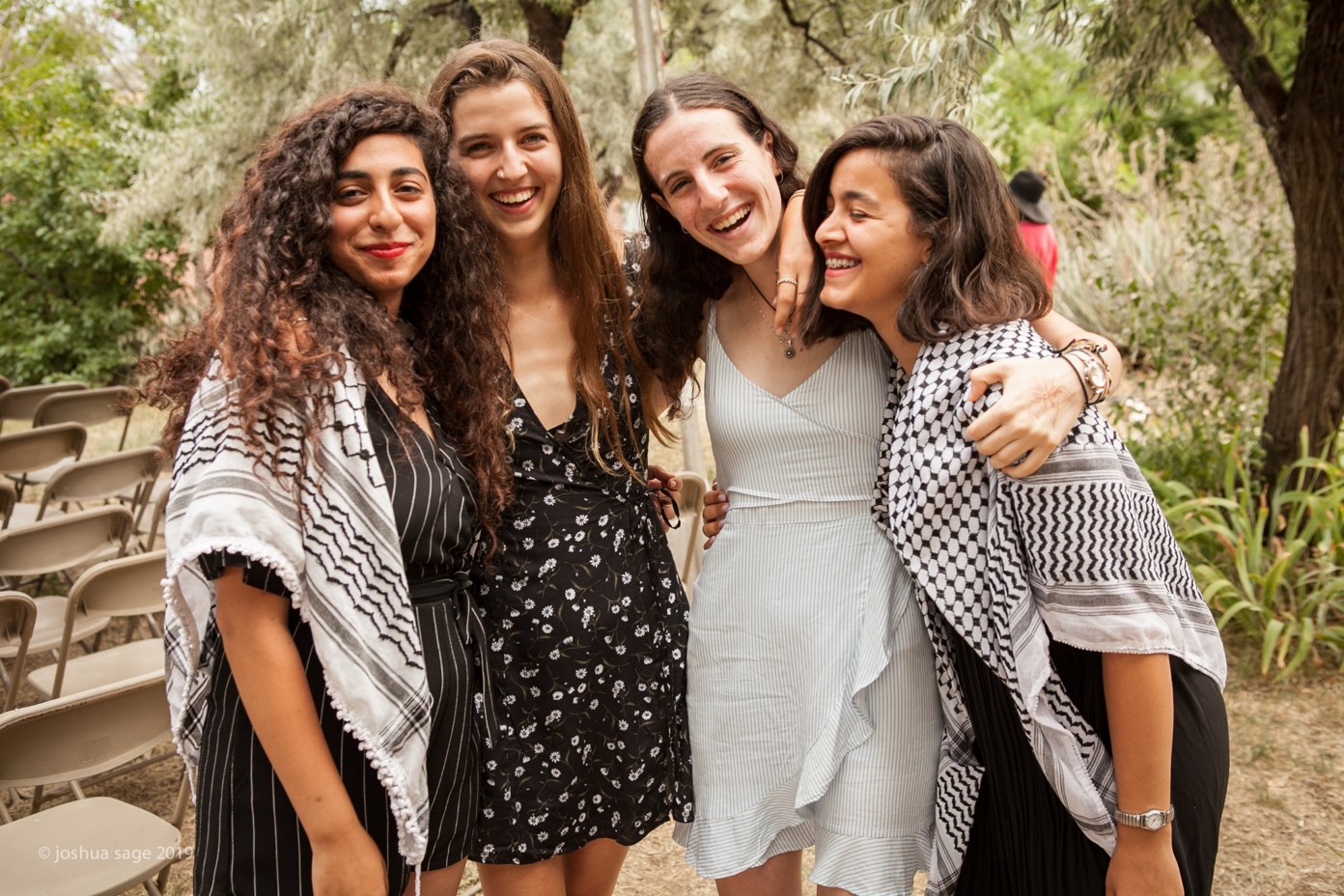
Mission
Tomorrow’s Women trains young women from Palestine, Israel, and the United States to be strong, compassionate leaders who partner to resolve conflicts and inspire action that promotes equality, peace, and justice for all.
Life Challenges of the Women Served
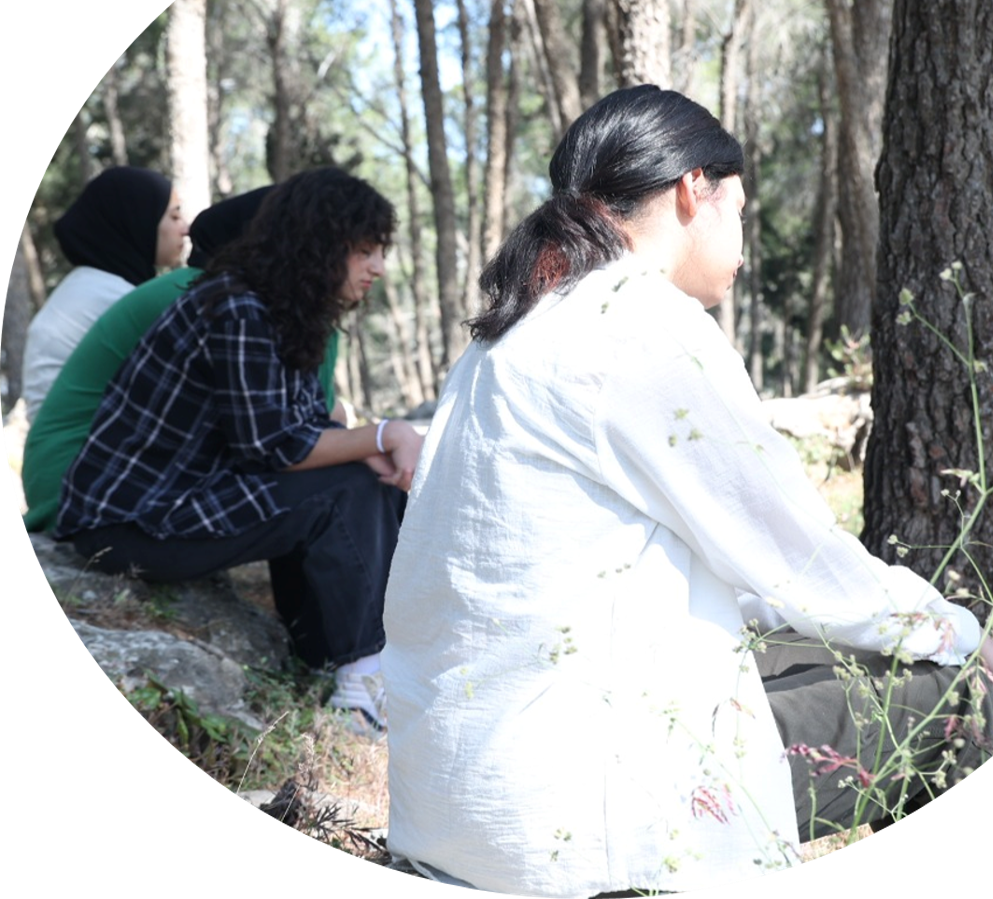 The barriers to young Palestinian female activism are as many as they are severe. The impact of conflict on women often builds on pre-existing situations of discrimination, including the delivery of basic services, access to healthcare and education. Women are forced to look for alternative sources of livelihood, with families in conflict zones often depending heavily on their contributions. Pervasive and discriminatory patriarchal cultural traditions also make gender equality a difficult issue to broach in society. They permeate all aspects of life for women, severely limiting their opportunities for civic engagement. Most significantly impacted are Palestinian young women from Gaza, Jerusalem, and the West Bank currently living under occupation, and Palestinian Israelis living in a deeply segregated system who are currently engaged in peacemaking, social entrepreneurship, and activism.
The barriers to young Palestinian female activism are as many as they are severe. The impact of conflict on women often builds on pre-existing situations of discrimination, including the delivery of basic services, access to healthcare and education. Women are forced to look for alternative sources of livelihood, with families in conflict zones often depending heavily on their contributions. Pervasive and discriminatory patriarchal cultural traditions also make gender equality a difficult issue to broach in society. They permeate all aspects of life for women, severely limiting their opportunities for civic engagement. Most significantly impacted are Palestinian young women from Gaza, Jerusalem, and the West Bank currently living under occupation, and Palestinian Israelis living in a deeply segregated system who are currently engaged in peacemaking, social entrepreneurship, and activism.
Living under occupation adds another layer of oppression that has a daily impact on women’s lives, well-being, and security, as well as their engagement and participation in the public and private spheres. The occupation has made connectivity and lasting relationships nearly impossible among young Palestinian women as travel is severely restricted, demoralizing, and requires safe and costly transportation due to blockades in Gaza and checkpoints throughout the West Bank. The threat of violence on a regular basis has made grassroots participation and empowerment activities especially challenging because local organizations need time to assist women and their families with recovery from each cycle of violence.
The lack of sustained participation by young Palestinian women living in the Occupied Palestinian Territories and in Israel poses a critical risk to the success of all peace processes, formal and informal. By joining the Israeli-Palestinian peace movement, these young women work under harrowing circumstances, put their lives at risk, and constantly fear retaliation from extremists on both sides of the conflict, making continued engagement in the movement extremely challenging.
The Project
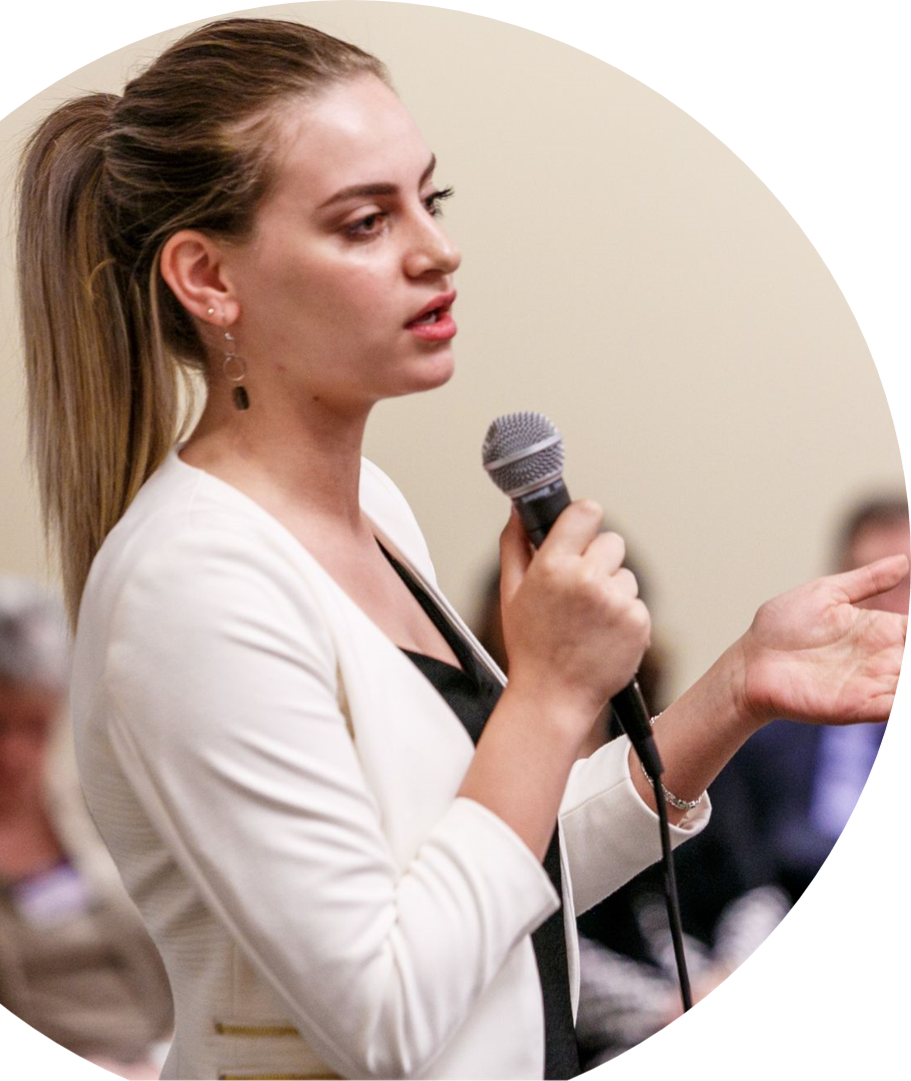 Tomorrow’s Women (TW) and this project in particular are rooted in gender equity and as such, align with Together Women Rise in the areas of female leadership, education, community building, improved emotional and psychological health, as well as advocacy for policies that promote peace, and security. This project addresses many of these issues as they pertain to young Palestinian women and supports TW’s strategy of addressing the imbalance of power and resources in the conflict.
Tomorrow’s Women (TW) and this project in particular are rooted in gender equity and as such, align with Together Women Rise in the areas of female leadership, education, community building, improved emotional and psychological health, as well as advocacy for policies that promote peace, and security. This project addresses many of these issues as they pertain to young Palestinian women and supports TW’s strategy of addressing the imbalance of power and resources in the conflict.
Fundamental to this project is TW’s Theory of Change:
- Young women in Israel, Palestine, and the U.S. will become collaborative leaders and equitable partners in conflict mitigation at all levels of society if they engage in clearly defined opportunities for peacebuilding.
- When young women seek out and are offered continuous relationship-based support, mentorship, and guidance, they are most likely to sustain the process and stay invested in its outcome.
- When young women learn how to share and promote their stories and solutions on relevant platforms and with key individuals across all sectors, they are more likely to be acknowledged and included in all places where decisions are made.
- As empowered leaders and decision-makers, these young women will drive positive change in their communities, resulting in a more equal, just, and peaceful society.
Tomorrow’s Women serves young women ages 15 – 29 from all economic backgrounds. The project in Palestinian Territories builds a community of practice by and for young women peace activists from Gaza, Jerusalem, West Bank, and those living in Israel. Led by alumnae, the first-of-its-kind community of practice will allow these courageous women to convene regularly, receive resiliency training, and collaborate on a community needs assessment to highlight and mitigate the key barriers to Palestinian young women’s engagement in peacemaking. Through the implementation of a self-governed and ultimately self-sustained community of practice, TW’s goal is to equip these young women with the confidence, resilience, and leadership skills necessary to negotiate their own engagement in the field and eventually assume greater positions of power and influence.
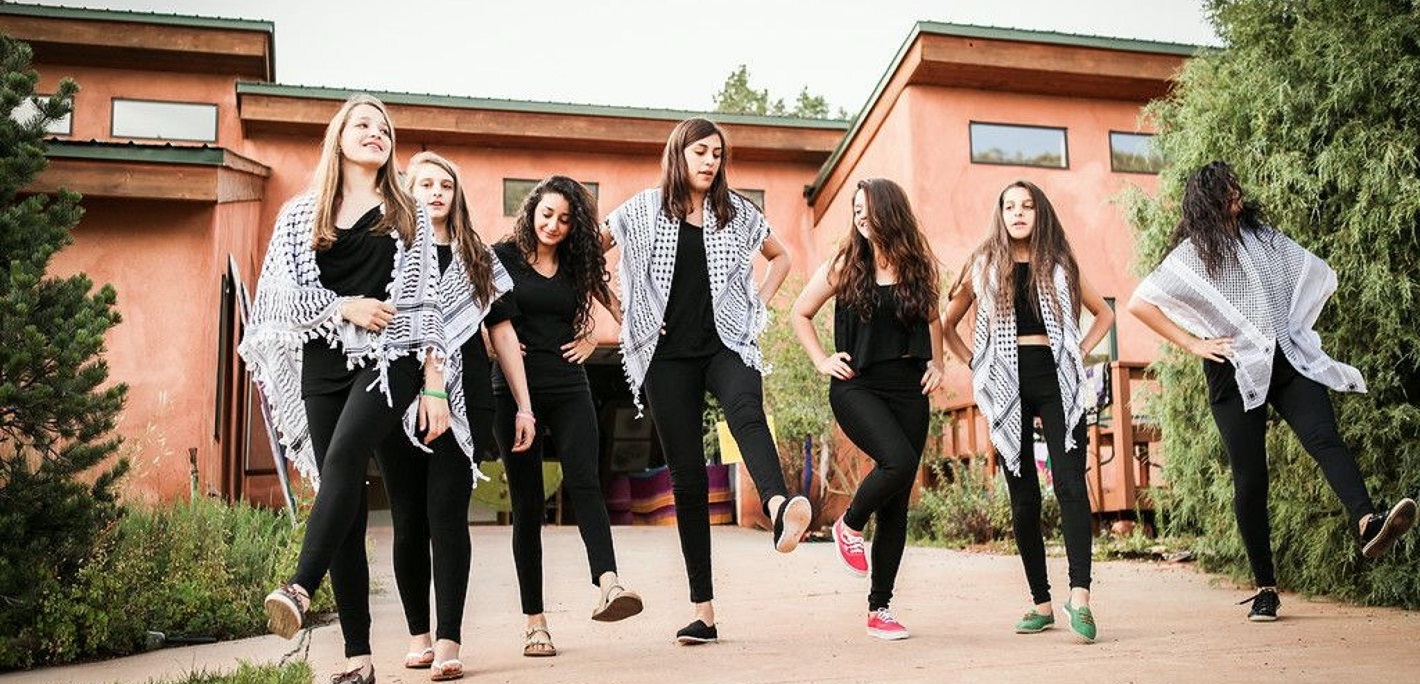
There are three main components of the project:
This project will provide retreats and workshops featuring emotional resilience and trauma healing sessions, leadership workshops, survey taking, and listening sessions for the creation of a baseline of data for the group. Additionally, a social media campaign will be created to promote the circumstances facing young women activists in Gaza.
Gaza: Ten workshops for 20 Gazans facilitated by Tomorrow’s Women’s expert Palestinian facilitators – Of the 10 workshops, there will be one in-person session in Gaza at the Center for Women’s Programs and nine virtual sessions (due to blockades), two of which will be with Palestinian counterparts in the West Bank and international peers in the United States via a secure virtual platform. One social media project, entitled “Where I Live,” will include up to 20 blogs and multiple professionally produced podcasts, fulfilling a request from Gazans to share their stories without being photographed or recognized. Podcasts will be aired during the annual alumnae tour in the U.S. and on TW’s website to leverage their voices of living in determination and despair.
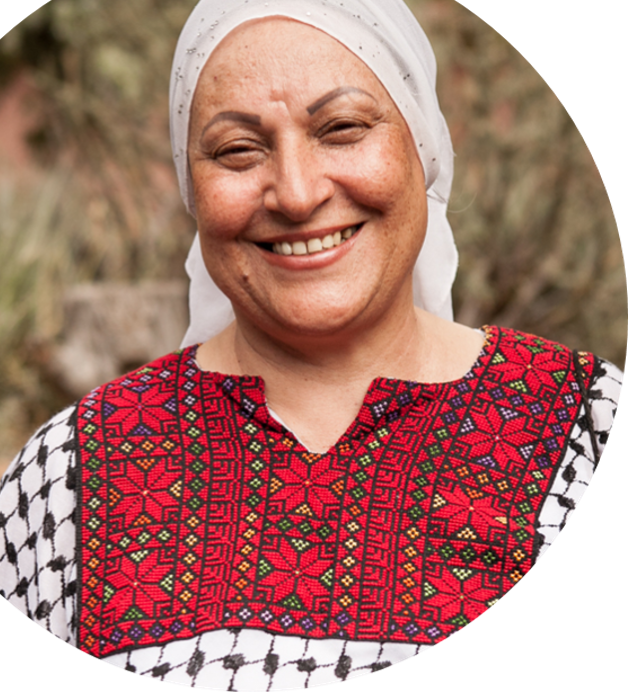 West Bank: Three in-person weekend resiliency retreats for up to 35 unique participants each from the West Bank, Jerusalem, and Palestinians living in Israel. Each retreat will include (at a minimum) one Compassionate Listening workshop, one Movement session, one HeartMath session, two facilitated listening sessions (qualitative data), and one survey-taking session (quantitative data), one leadership training workshop (such as professional networking), CV writing. and public speaking. The post-program follow-up includes three, one-hour sessions by TW alumnae facilitators to share the analyzed data with the participants and one community-wide (in-person/virtual) presentation.
West Bank: Three in-person weekend resiliency retreats for up to 35 unique participants each from the West Bank, Jerusalem, and Palestinians living in Israel. Each retreat will include (at a minimum) one Compassionate Listening workshop, one Movement session, one HeartMath session, two facilitated listening sessions (qualitative data), and one survey-taking session (quantitative data), one leadership training workshop (such as professional networking), CV writing. and public speaking. The post-program follow-up includes three, one-hour sessions by TW alumnae facilitators to share the analyzed data with the participants and one community-wide (in-person/virtual) presentation.
Community Needs Assessment: A professional evaluation will include survey questions and guide for listening sessions, development of community needs assessment for distribution and publication within the peacebuilding field.
Through this project, young Palestinian peace activists will have greater hope, connectivity, and sisterhood in support of a unified Palestinian narrative. Specific outcomes include:
- Launch an ongoing and self-sustaining community of practice through gatherings and trainings in the West Bank and Gaza
- Increase emotional resiliency skills, trauma healing, confidence and sustained engagement in the field.
- Assist up to 100 women in starting projects in their communities, with the outcome that 50 percent of participants start peacemaking projects and strategic efforts in their communities or in partnership with their Israeli counterparts
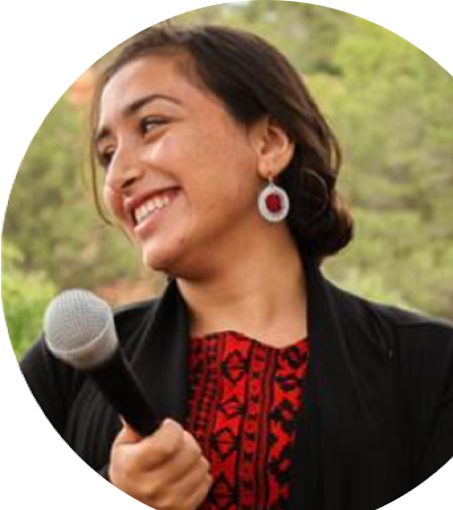 Gather qualitative and quantitative data through listening sessions and surveys from up to 100 participants, resulting in unique baseline data from this community needs assessment
Gather qualitative and quantitative data through listening sessions and surveys from up to 100 participants, resulting in unique baseline data from this community needs assessment- Conduct a professional analysis of findings, with the outcome of producing a published baseline of data for young Palestinian women activists
- Establish concrete support to affect change in their neighborhoods, communities, and in all of civil society through project support and leadership training
- Acknowledge and promote their contribution to the peacemaking field in the region through a community needs assessment.
The project directly serves 120 young women activists from Gaza, Jerusalem, and the West Bank and Palestinians living in Israel. Direct beneficiaries also include three Palestinian alumnae who will be provided stipends to help implement the project, one project coordinator in Gaza, as well as two contracted Palestinian facilitators.
This initiative will also impact the families and communities of the participants. An estimated 1,200+ Palestinian individuals will be impacted, based on the accepted assumption that each person directly impacted by this program will have an influence on 10 other people. Additionally, by producing a professionally published community needs assessment and presenting their findings, this project is also likely to impact thousands more individuals in peacemaking organizations in the Middle East and the United States. Held in the West Bank, TW’s retreats will also support Palestinian businesses and service providers in the area of hospitality, transportation, and food.
Peacemaking in this region of the world is a long game and requires vision and commitment. TW firmly believes this initiative is crucial to the continued empowerment of young Palestinian women, and the health and integrity of conflict mitigation and peacemaking fields. This program and its exponential impact on participants’ well-being will sustain their engagement in the field, and ultimately advance the movement to a more just and lasting peace.
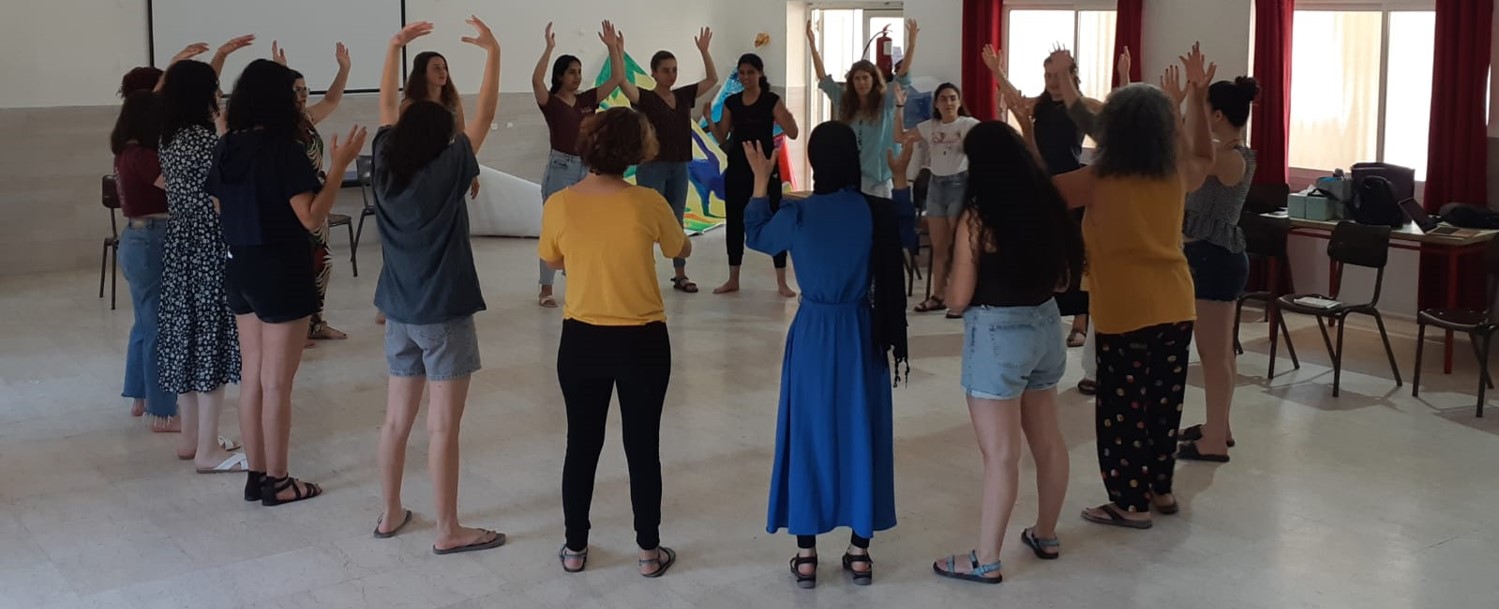
A key by-product of the leadership and emotional resiliency programs is that these young women learn skills that position them for success in all careers. TW’s programs promote and result in greater self-confidence and improved soft skills such as public speaking and presentations, compassionate listening, and conflict resolution techniques. Transformative local and global connections are made as well as lasting intragenerational and professional mentorships, all of which are precursors to self-sufficiency and economic viability.
To date, TW has graduated hundreds of young women (even Israeli/Palestinian split) and their projects have dealt with cross-cutting issues that permeate social, economic, and environmental aspects in Israel and Palestine, promoting change in their communities as well as internationally.
Direct Impact: 120; Indirect Impact: 1,200+
UN Sustainable Development Goals
![]()
![]()
Questions for Discussion
- How do you think the participation of alumnae in design and implementation enhances the effectiveness of Tomorrow’s Women’s projects?
- Discuss the significance of “Do No Harm” policies (which consider the impact of project activities on this region in conflict and the individual safety and security of participants) to the success of this project.
- Given the longevity of occupation and the continued volatility in the region, how do you think Tomorrow’s Women and its partner organizations keep participants and staff engaged?
How the Grant Will be Used
Together Women Rise’s grant of $38,525 will help fund the following:
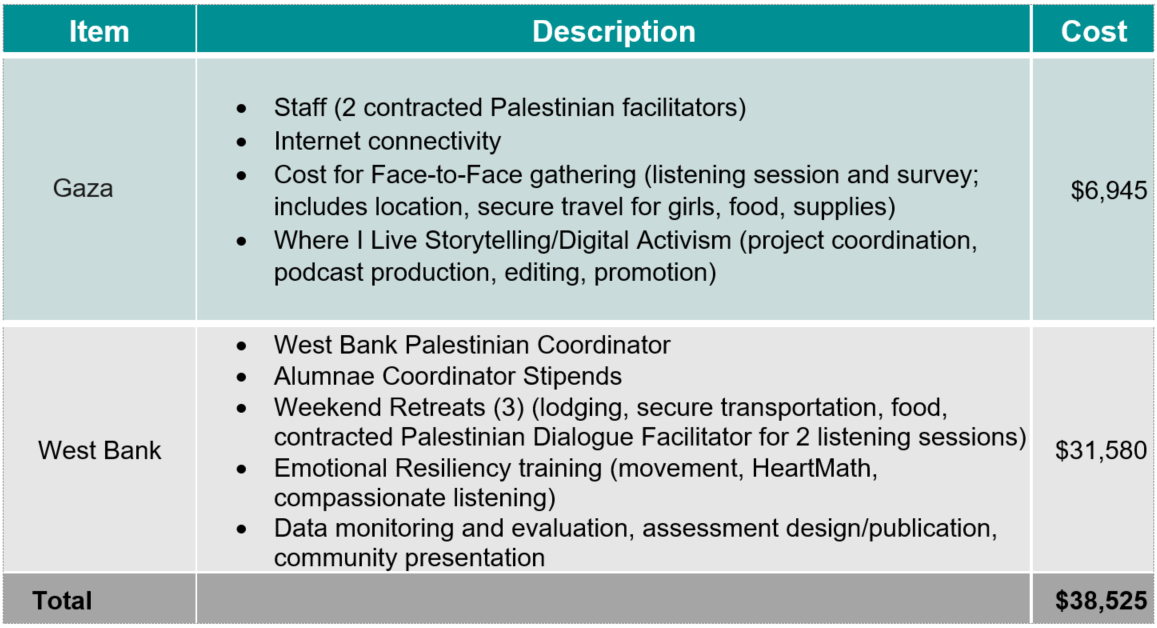
Why We Love This Project/Organization
We love the opportunity for greater understanding of poverty in Palestine and what poverty looks like. Peace Building is a critical component of this project (women make peace building more effective!) and it includes compassionate listening and dialogue. Girls are the agents of change here – alumnae have developed this new program.
Evidence of Success
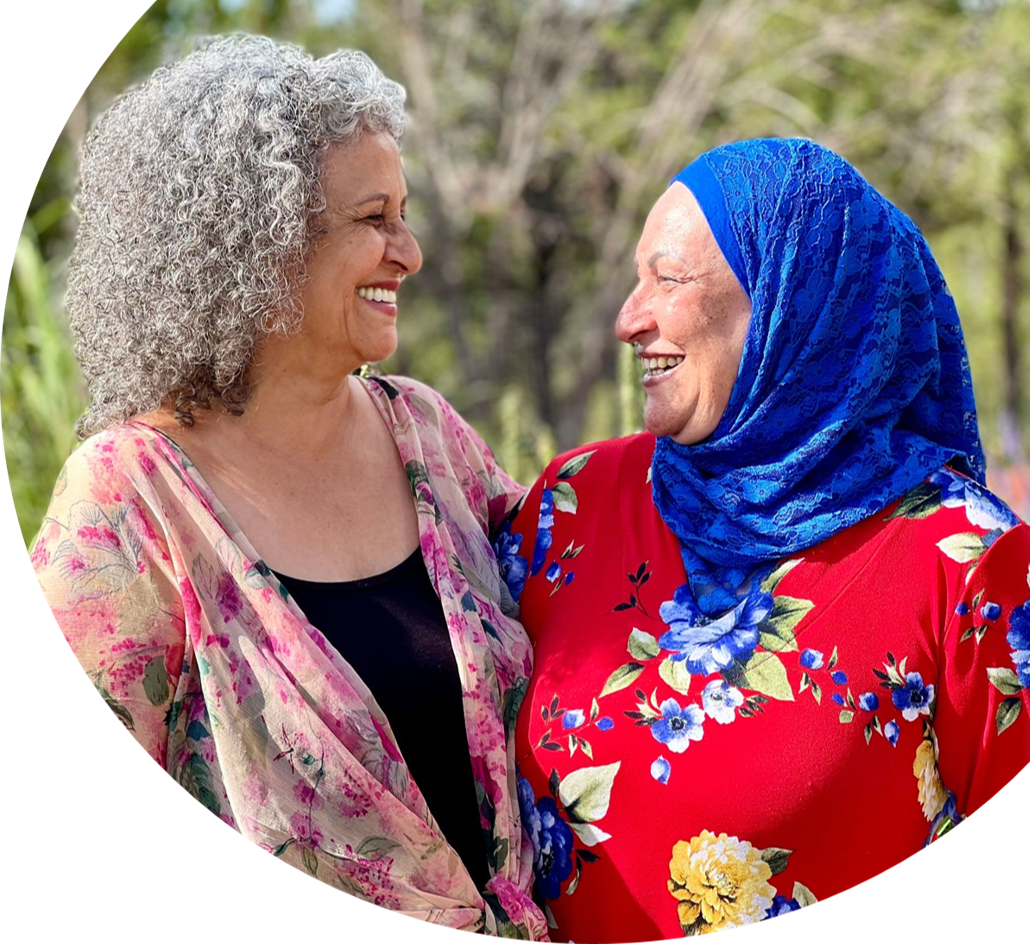 Tomorrow’s Women has graduated hundreds of young women and its projects have dealt with cross-cutting issues that permeate social, economic, and environmental aspects in Israel and Palestine, promoting change in local communities as well as internationally. TW was one of only three organizations selected by the Alliance for Middle East Peace, a consortium of 150 peace organizations in the region (of which TW is a member) to present its work and impact in the field to a selection of regional philanthropists which resulted in several new investments in the organization. Its work has resulted in the first organized Arab-Jewish book fair at Hebrew University and the founding of Runners Without Borders, an organization that has produced six joint Jewish-Arab events with more than 1,300 runners participating. Some of TW’s graduates work in partnership to facilitate dialogues in their own communities, while others have spoken at international summits, such as the Davos Economic Summit, the United Nations Commission on the Status of Women, and the World Economic Forum. Many of TW’s alumnae go on to pursue professional careers in journalism, law, and government, making a lifelong commitment to social justice and advocacy. Through a USAID-funded project in 2015, TW created and then integrated the Feminist Inclusive Political Action Code (FIPA) into the entirety of the organization that has been adopted by many community organizations, including the Alliance for Middle East Peace.
Tomorrow’s Women has graduated hundreds of young women and its projects have dealt with cross-cutting issues that permeate social, economic, and environmental aspects in Israel and Palestine, promoting change in local communities as well as internationally. TW was one of only three organizations selected by the Alliance for Middle East Peace, a consortium of 150 peace organizations in the region (of which TW is a member) to present its work and impact in the field to a selection of regional philanthropists which resulted in several new investments in the organization. Its work has resulted in the first organized Arab-Jewish book fair at Hebrew University and the founding of Runners Without Borders, an organization that has produced six joint Jewish-Arab events with more than 1,300 runners participating. Some of TW’s graduates work in partnership to facilitate dialogues in their own communities, while others have spoken at international summits, such as the Davos Economic Summit, the United Nations Commission on the Status of Women, and the World Economic Forum. Many of TW’s alumnae go on to pursue professional careers in journalism, law, and government, making a lifelong commitment to social justice and advocacy. Through a USAID-funded project in 2015, TW created and then integrated the Feminist Inclusive Political Action Code (FIPA) into the entirety of the organization that has been adopted by many community organizations, including the Alliance for Middle East Peace.
According to 2021 published data, 85 percent of participants called TW’s Young Leader Program life-changing, while 92 percent said they want to take part in peacebuilding projects in the near future, 83 percent of Gaza Girls reported feeling more confident in their ability to integrate with and build authentic relationships with people from different cultures and beliefs, and 100 percent reported greater confidence in their ability to listen.
Voices of the Girls
“When I came to camp, the occupier became my roommate. I suddenly understood how meaningful and crucial this work is. After seven years in this organization, I use the tools I’ve learned to document the Israeli Knesset’s activities and teach Arabic to Jewish Israelis. I no longer hate the Hebrew language and I often host Israelis in my home. Together we cook and dance. My focus as an activist is to minimize the gaps between the two nations and help each to understand and connect with the other.” – Aia Khalaily, alumna 2010
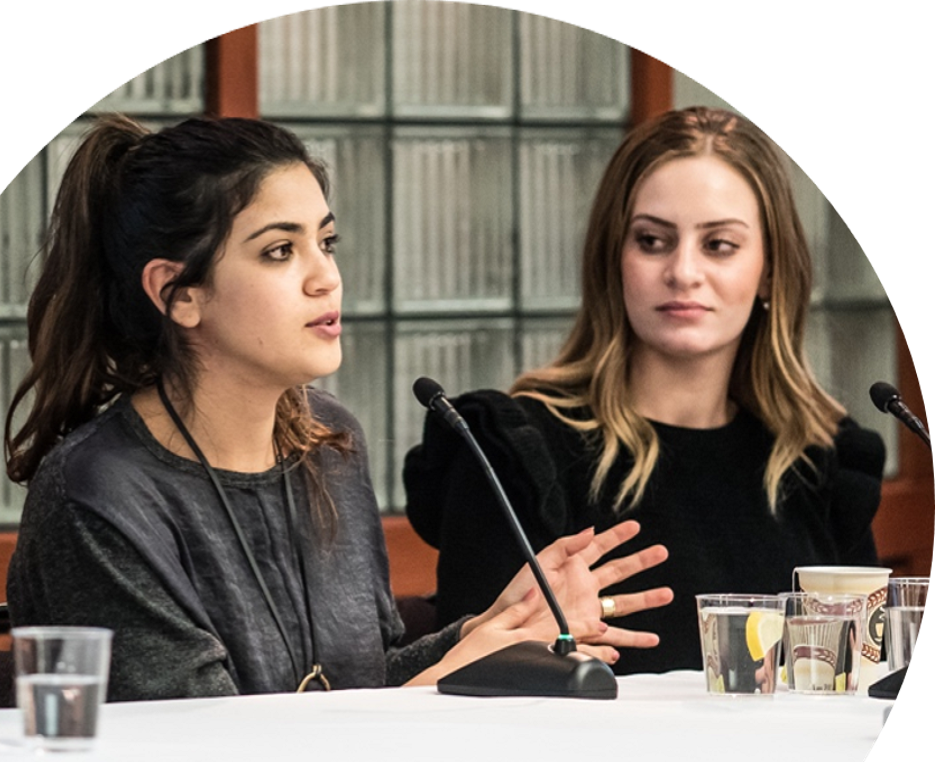 “Being a young leader was the best thing that happened in my life.” – Liza, alumna 2013
“Being a young leader was the best thing that happened in my life.” – Liza, alumna 2013
“More than even peace, I have gained an unbreakable sisterhood.” – Lana, alumna 2016
“The whole three weeks of memories (of camp) are always running through my head. I always think about our hard times together and the good times when we had fun with each other, and I miss these days. It’s been like a dream, and it ended too fast. I wish I could live the moments again with the same people with the same thoughts, the same situations. I felt free all the time just to say what I wanted without hesitating or feeling afraid. Those three weeks were the best three weeks in my life, and of course, the following two years were better for me with the seminars. I attended all of them to see my friends and to talk more without hesitating or judgment.” – Nora, alumna 2018
“Gaza Girls made me calmer in spirit, opened doors for me in creative thinking, and allowed me to speak and lead fearlessly.” – Amal, alumna 2022
About the Organization
Founded in 2003 after the second Intifada (uprising between the Palestinians in the West Bank and Gaza), Tomorrow’s Women (TW) trains young women ages 15 – 29 from Palestine, Israel, and the United States to be strong, compassionate leaders who partner to resolve conflicts and inspire action that promotes equality, peace, and justice for all.
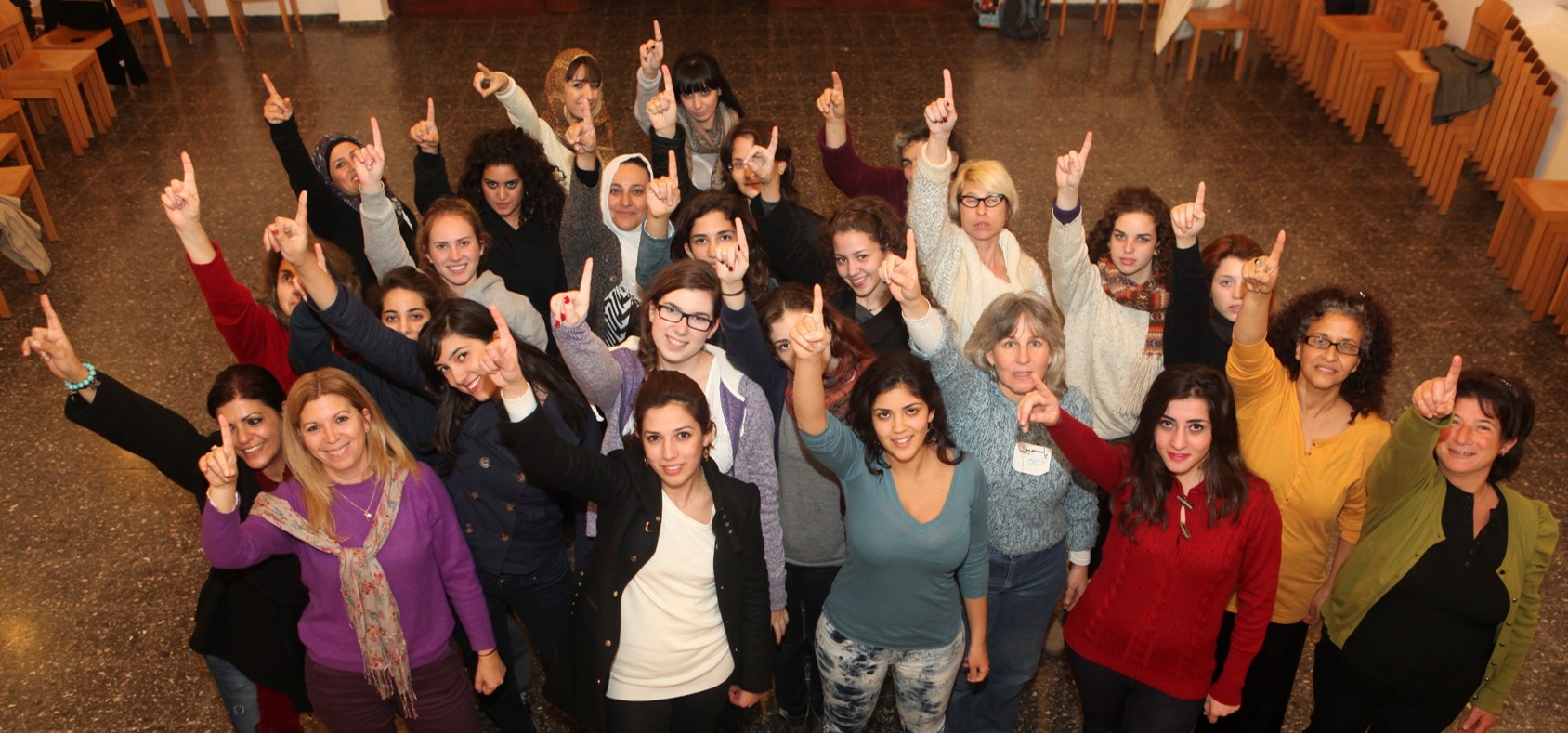
The founders, humanitarian Rachel Kaufman, artist Debra Sugerman, and activist Anael Harpaz, believe in providing young women with a safe, neutral location, and an empathetic model to begin their trauma healing and the hard work of forming lasting connections and partnerships for change. TW’s proprietary model for Compassionate Dialogue draws from the work of The Compassionate Listening Project, founded by Leah Green and the late Quaker activist Gene Knudsen-Hoffman, from Marshall Rosenberg’s Nonviolent Communication, and from The Way of Council, developed and formalized by Jack Zimmerman. Its flagship Young Leader Program is a year-long, immersive leadership experience for young Israeli and Palestinian women based on transformational dialogue sessions and creative and therapeutic workshops that allow participants to share their personal experiences, practice compassionate listening, and build an understanding of their peers from the “other side.” This program concludes with intensive leadership seminars in Israel and Palestine about gender, dual narratives, grief, forgiveness, and activism, preparing participants to be the next generation of women peacemakers in the region.
Approaching its 20th anniversary, TW launched two new initiatives during the height of the pandemic in 2020: the groundbreaking virtual Gaza Girls for greater inclusivity, and the Advanced Leadership Initiative for more concrete change-making opportunities for Israeli and Palestinian young women to partner on projects and affect change on the ground. TW also is in the final planning stages of designing and launching a Dialogue Facilitator in Training program for young Israeli and Palestinian women in partnership with Oranim College in 2023.
Where They Work
Gaza:
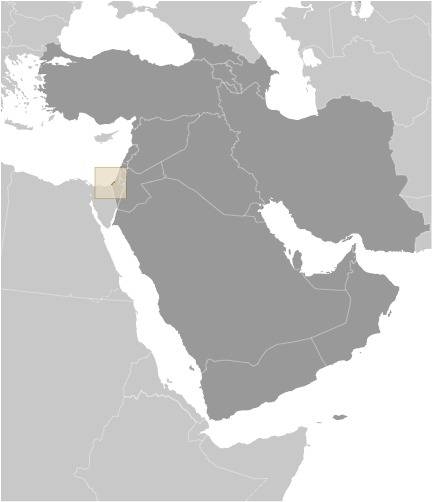
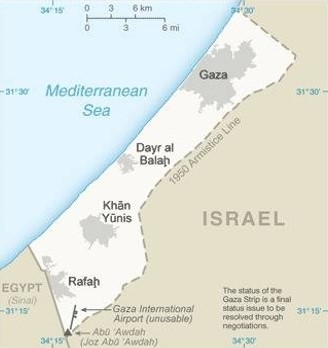
The West Bank:
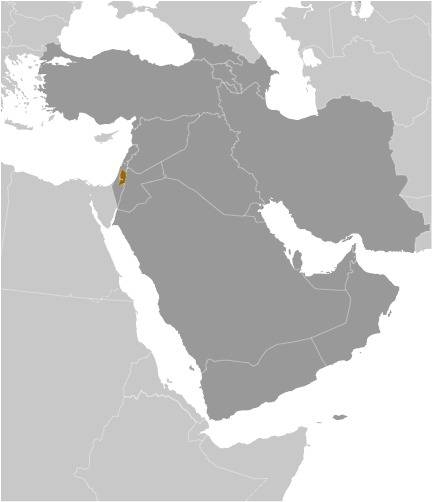
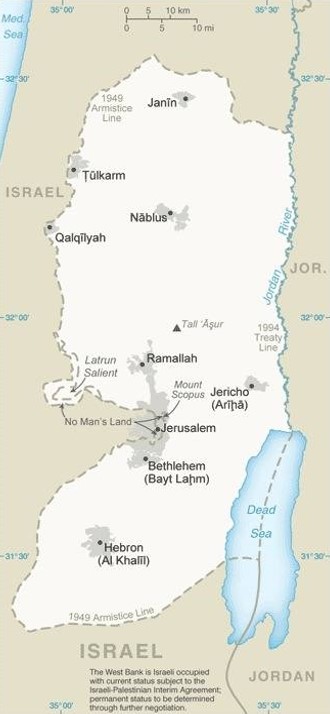
Tomorrow’s Women service areas are primarily in Palestine including Gaza, Israel, as well as in the United States (Northern New Mexico). The “Palestinian Territories” and “Occupied Palestinian Territories” refer to the territories of the West Bank (including East Jerusalem) and the Gaza Strip, which are occupied or otherwise under the control of Israel since 1967.
The Gaza Strip is a strip of land with a coastline at the Mediterranean Sea. The small self-governing Palestinian territory is bordered by Egypt (Rafah border crossing) and by Israel with 1.9 million Palestinian Arabs living in Gaza Strip (est. 2017).
The West Bank is a landlocked, rugged territory in the Mediterranean Region, west of Jordan, surrounded on three sides by Israel. The territory has a population of 3 million people (est. 2017). About 500,000 Israeli settlers live in the West Bank (est. 2023).
The need to focus on the young people of this area is self-evident given its population statistics. The current median age of Israeli citizens is 31, with an estimated 42 percent of the population under age 24, while Palestinian’s median age is 21, with 69 percent under the age of 29. Two-thirds of the population in Gaza are under the age of 16.
The magnitude of the problems in this region are severe given the longevity and the intractability of the conflict, as well as the number of generations, particularly of women, it has affected. In 2020, three women were killed by the Israeli forces and 128 women were arrested in the West Bank, Jerusalem, and the Gaza Strip. According to the Palestinian Central Bureau of Statistics, 40 percent of unmarried women have been physically abused by a member of their household. The Palestinian Monitoring Group has stated that Israeli military and settler activity in the Occupied Palestinian Territories affected 28 percent of the Palestinian student population through killings, injuries, and arrests. Additionally, the curfews imposed by the Israeli army have caused the loss of thousands of school days.
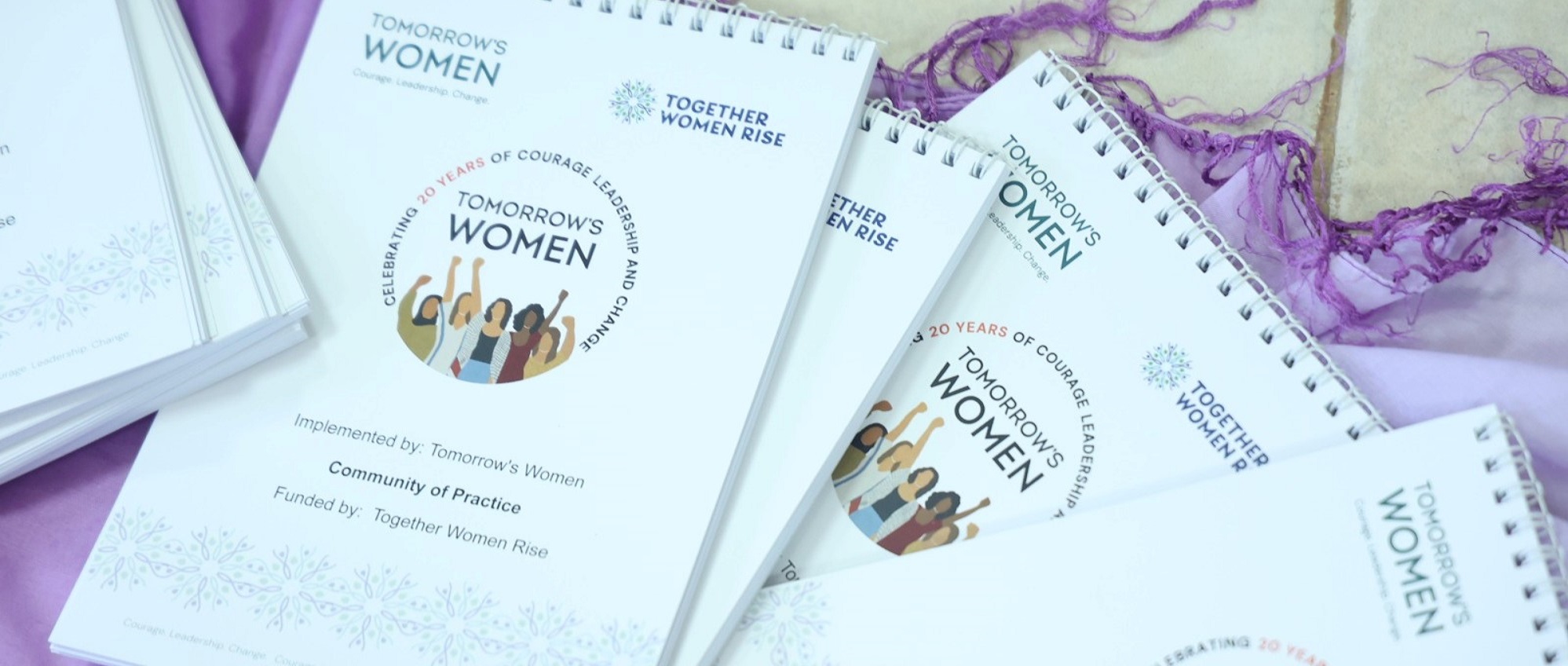
A closer look at the role of women and girls in the peace movement
In 2000, the role of women in peacebuilding as well as the impact on their lives was recognized by the United Nations Security Council (UNSC). Through the creation of Resolution 1325, the UNSC formally acknowledged the changing nature of warfare, in which civilians are increasingly targeted, and women continue to be excluded from participation in peace processes. The resolution recognizes the critical role that women can and already do play in peacebuilding efforts and affirms that peace and security efforts are more sustainable when women are equal partners in the prevention of violent conflict, the delivery of relief, and recovery efforts and in the forging of lasting peace. The Resolution urges all actors to increase the participation of women and additionally incorporate gender perspectives in all United Nations peace and security efforts.
While important strides have been made since the adoption of UNSCR 1325, women’s direct participation and representation in formal peace processes continues to fall behind. Between 1992 and 2019, women served as only 6 percent of mediators, 6 percent of signatories, and 13 percent of negotiators globally.
Source Materials
https://www.usip.org/gender_peacebuilding/about_UNSCR_1325#:~:text=What%20is%20the%20focus%20of,in%20conflict%20prevention%20and%20peacebuilding
https://www.unwomen.org/en/news/stories/2021/8/feature-strengthening-womens-meaningful-participation-in-peace-processes
https://www.nationsonline.org/oneworld/palestinian_territory.htm
https://www.cia.gov/the-world-factbook/middle-east/
https://unesdoc.unesco.org/ark:/48223/pf0000381200?posInSet=2&queryId=872c5e83-323c-4954-9d22-724e7a3bf4e1
https://www.wvi.org/peacebuilding-and-conflict-sensitivity/do-no-harm
https://www.pbs.org/newshour/world/israeli-settler-population-in-west-bank-surpasses-half-a-million#:~:text=Israeli%20settler%20population%20in%20West%20Bank%20surpasses%20half%20a%20million%20%7C%20PBS%20NewsHour
